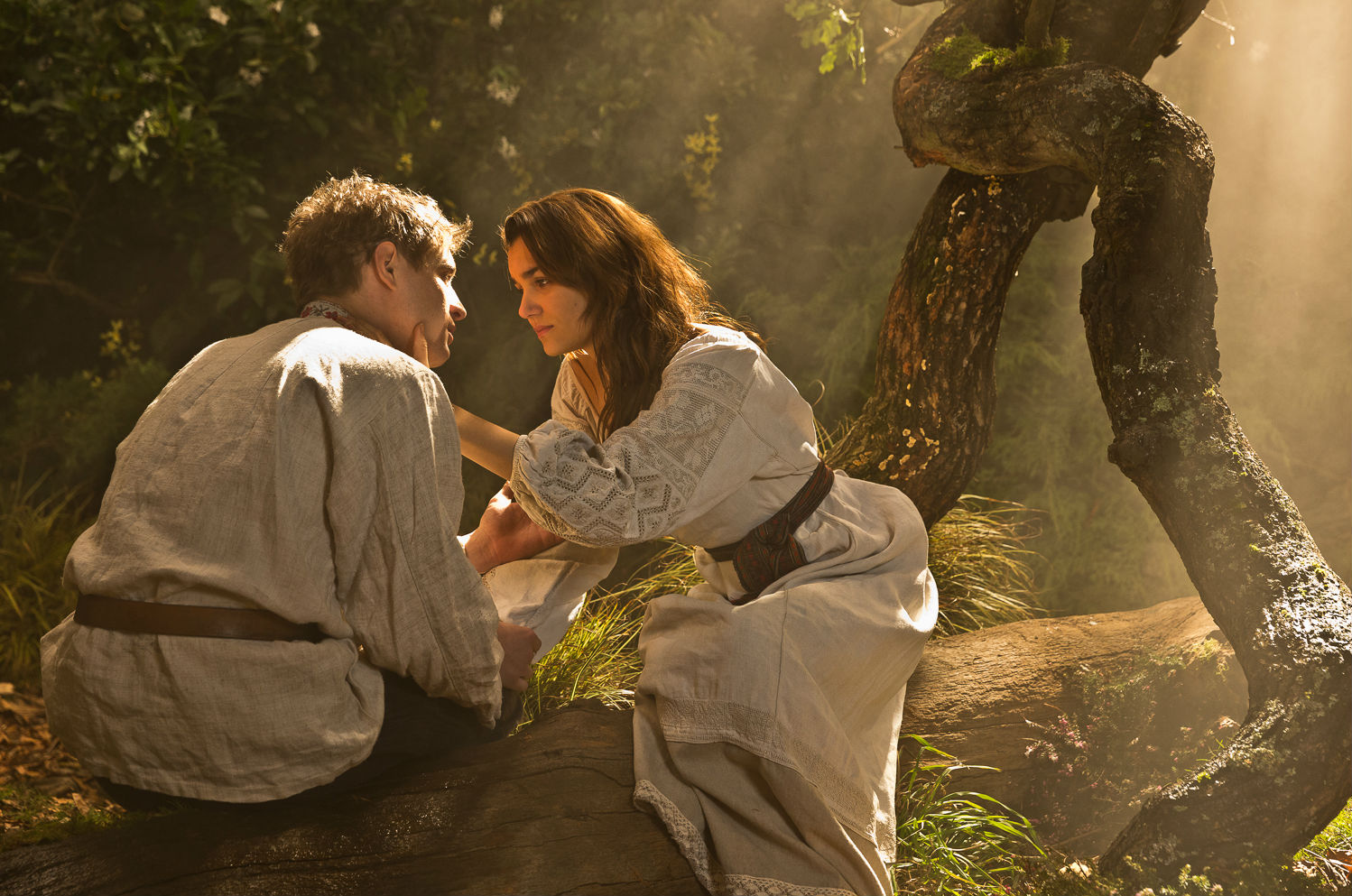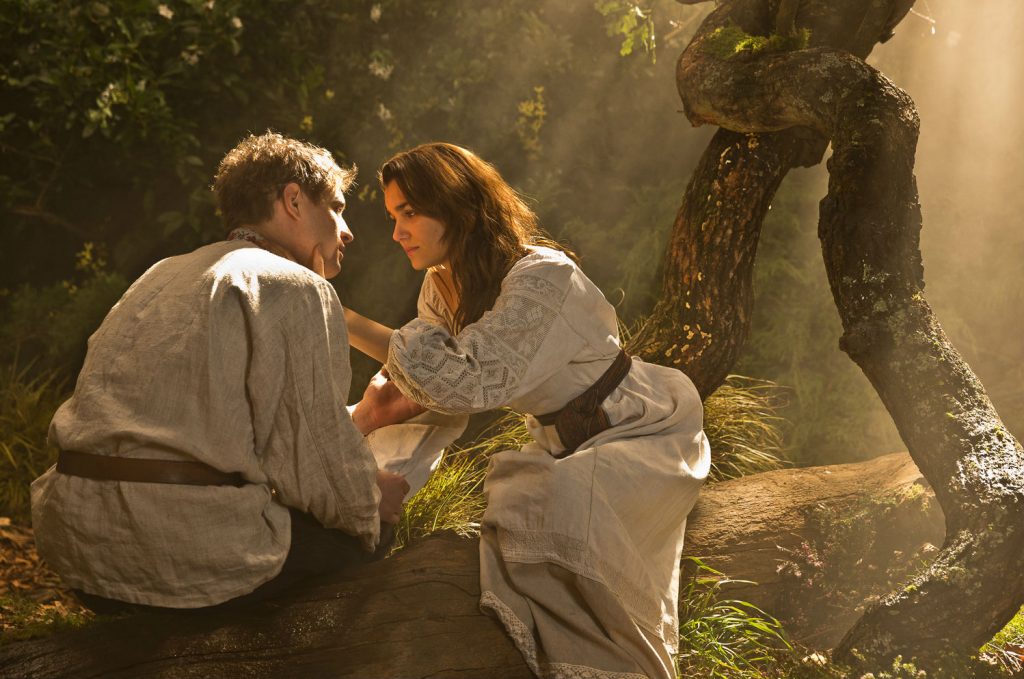 Ukraine is a nation interrupted, its identity and promise stolen by predators for centuries.
Ukraine is a nation interrupted, its identity and promise stolen by predators for centuries.
The predation continues today as Russian President Vladimir Putin’s creeping invasion of Ukraine grinds on, resulting in the murder of 10,000 Ukrainians, destruction of two major cities and its industrial base, seizure of nine percent of its land, and flight of 1.6 million people from their homes since 2014.
This week, on screens around the world, a feature-length film called Bitter Harvest provides a broader context for this unfolding tragedy. The historical drama is set in 1931 during the harrowing genocide committed by Russia against Ukraine, a horror that remains one of the biggest secrets of the twentieth century. The Holodomor, or forced death by starvation, was a policy launched by Joseph Stalin to force Ukrainians into collectivizing their farms.
The scale of this famine remained hidden by the Soviets, but in 1991 Ukraine declared independence and opened the Soviet archives. The revelations there led to a 2003 United Nations Joint Statement, signed by Russia, declaring that the Holodomor had killed between seven to ten million people. Then, on October 23, 2008, the European Parliament adopted a resolution recognizing the Holodomor as a crime against humanity.
The film’s love story, rapturous scenery, and first-class score give an unforgettable human face to this genocide. Veteran actor Terence Stamp depicts the proud and broken family patriarch, and British sensations Max Irons and Samantha Barks are cast as childhood sweethearts Yuri and Natalka, whose lives are destroyed but who eventually fight back.
Millions perished, newspapers lied, and leaders around the world ignored it all. One scene in the film depicts Stalin cunningly assuring a skeptic who was worried about world opinion, “Who in the world will know?” In another scene, a reporter tells Yuri about the catastrophe, then is dragged off by Russian henchmen.
By 1933, alarming reports about mass starvation were reported in the British press, but ignored in the United States. That same year, the United States officially recognized the Soviet Union; and in 1934, Stalin won membership into the League of Nations.
At the New York premiere of Bitter Harvest, actor Max Irons told an interviewer that he was unaware of this terrible tragedy in history until he read the script.
“I’m afraid to say I didn’t know about it,” he confessed. “I knew a little about this fractious relationship between Russia and Ukraine but, no, not about this. Hopefully we’re playing a very small part in getting the story out there.”
During the project, life imitated art as the cast and crew sometimes stole away at night to Kyiv’s streets to join protests against Ukraine falling under Russian control again. One actor, Gregory Matias, died in combat in the Donetsk region in 2014 when an illegal mortar exploded, killing him. He was engaged to a Ukrainian actress on the film, Olena Dydick.
The project has been the passion of Canadian financier Ian Ihnatowycz, who wanted to set the record straight for the West about the suffering of Ukrainians at the hands of Russia. His parents and grandparents fled the country during the Second World War. Director George Mendeluk was born in Germany to Ukrainian parents who were also survivors.
“Like all Ukrainians, my family suffered enormously,” said Ihnatowycz. “There isn’t a Ukrainian alive who doesn’t know about the persecution, executions, and starvation. Given the importance of what happened, and that few outside Ukraine knew about it because it had been covered up, the story of this genocide needed to be told. It’s relevant today.”
It undeniably is. In recent months, revelations about Russia’s cyberattacks, sabotage, and aggression in Ukraine, the United States, Europe, and elsewhere have dominated headlines. This movie underscores that Ukraine remains the canary in the coal mine, an alert to the world about Putin’s destructive and dangerous Russia.
The film’s ending, like Ukraine’s, is equivocal. The young lovers open the film romping and swimming underwater, then embark on a treacherous journey of hardship and rebellion. At the end, they plunge into a river to avoid capture and swim underwater dodging bullets and hopefully death.
Ukraine too faces a difficult and uncertain future; the country now supports the largest military in Europe, or 400,000 troops in total, to prevent an all-out invasion by Putin.
“It’s ironic that before we even finished our film, we had yet another example of Russia’s aggression against Ukraine,” said Ihnatowycz.
Clearly, history doesn’t repeat, but it rhymes. That is the case with Ukraine, history’s underdog, which is bloodied and bruised once again, but determined to wrest itself from Russia’s iron grip. May it succeed, just as those who see Bitter Harvest can’t help but hope that the fictitious Yuri and Natalka reach the far shore and freedom.
Bitter Harvest will premiere in American theaters on February 24, and throughout Canada on March 3, 2017. Please check your local theater listings.
Diane Francis is a Senior Fellow at the Atlantic Council’s Dinu Patriciu Eurasia Center, Editor at Large with the National Post in Canada, a Distinguished Professor at Ryerson University’s Ted Rogers School of Management, and author of ten books. This review has been updated from the original review the Atlantic Council published on October 14, 2015.
Image: Max Irons and Samantha Barks in Bitter Harvest. Photo credit: Mark Tillie
